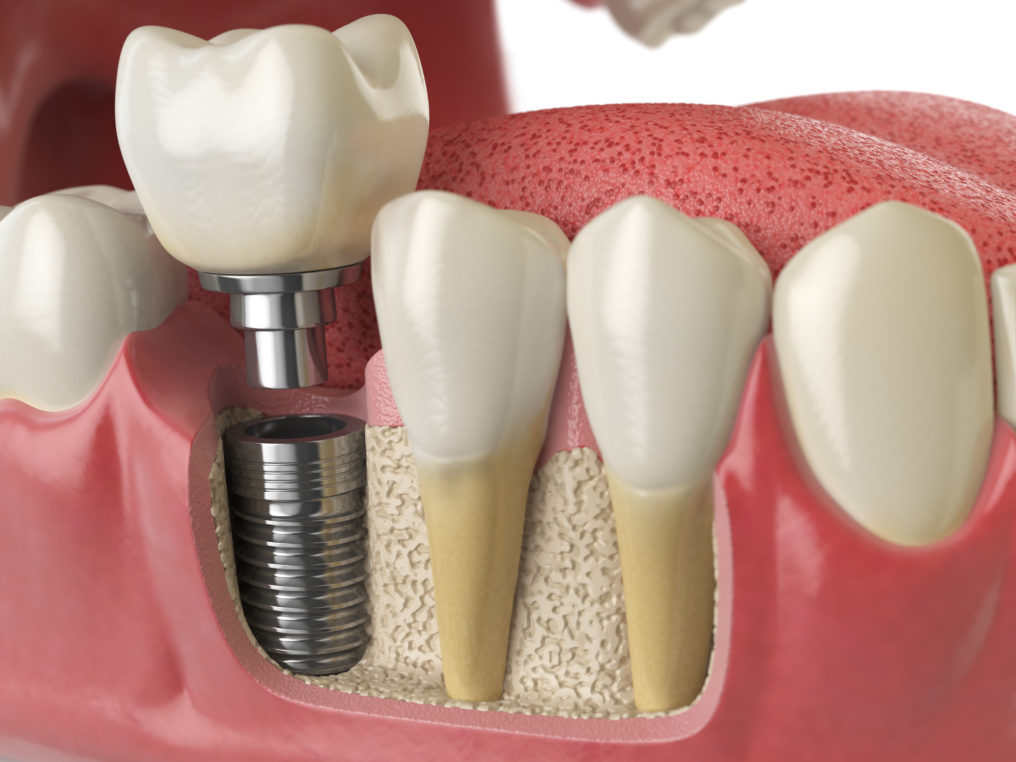Facing the prospect of dental implant placement can evoke anxiety in many individuals. Whether it’s a personal concern or one for someone you know, apprehension about potential pain is a common sentiment. However, it’s crucial to recognize that procedures of Rosewood Dentistry in Hamilton have advanced significantly in both technology and techniques. Contrary to traditional fears, the majority of dental implant patients report a nearly painless experience with minimal discomfort.
Dental implants serve as artificial dental roots designed to replace missing or damaged teeth. These implants provide a foundation for permanent or removable replacement teeth, carefully crafted to match the appearance of your natural teeth.
The process of dental implant placement involves several stages. Initially, a thorough examination and assessment are conducted to determine the suitability of dental implants for your specific case. Modern imaging technology allows for precise planning, ensuring optimal placement and alignment.
On the day of the procedure, local anesthesia is administered to ensure you remain comfortable throughout. Many patients are pleasantly surprised by the minimal discomfort experienced during the surgery. The implant is strategically placed in the jawbone, where it integrates with the surrounding bone over time.
Postoperative care is essential for a successful outcome. While some temporary swelling or mild discomfort may occur, it is typically manageable with prescribed medications. Patients often find that any initial concerns about pain are alleviated once they witness the transformative results of their new dental implants.
Choosing dental implants not only restores the function and aesthetics of your smile but also contributes to long-term oral health. With advancements in dental technology, the process has become more efficient, making dental implant placement a well-tolerated and rewarding solution for replacing missing or damaged teeth. If you or someone you know is considering dental implants, consult with our experienced professionals at Dental Implant Center in Hamilton to explore a painless and effective path to a revitalized smile.
Dental Implant Procedure
Dental Implant in Hamilton, a surgeon opens up tissue in your mouth and drills one or more titanium rods into the bone behind your gums. This serves as a permanent root for an artificial tooth replacement.
During dental implant surgery, you’ll be given a local anesthetic and shouldn’t experience any discomfort.
Pain may persist for a few days after surgery, but one can control it with medicine. However, pain that lasts more than a few days or worsens may necessitate medical attention.
Dental implants are frequently the final step in a three-phase procedure. Tooth extraction, implant rod or screw insertion, and replacement tooth insertion may all be part of the procedure. However, surgeons could spread out these procedures over a long period.

Pain During The Process
Undergoing a dental implant procedure, much like any other surgical operation, may involve some level of pain and discomfort. However, the extent of discomfort varies from person to person, as pain tolerance is a highly individualized experience.
Fortunately, advancements in dental procedures and enhanced pain management techniques now allow dentists to offer virtually pain-free implant treatments. Modern dental practices incorporate various forms of sedation, including moderate sedation, to help patients manage both pain and anxiety effectively. These sedation options contribute to a more comfortable experience during the implant process, ensuring that patients can undergo treatment with greater ease.
Moreover, for many individuals, non-narcotic medications prove to be sufficient in addressing pain associated with dental implant procedures. This personalized approach to pain management at our Hamilton-based dental practice prioritizes your comfort and minimizes any potential discomfort, ensuring a smoother and more relaxed experience throughout your dental implant journey.
Pain After The Process
The complexity of the surgery with dental implants may have an impact on post-treatment discomfort and soreness. Some people may have bruising, swelling, and even bleeding. Healing, on the other hand, varies from individual to person. After 7 to 10 days, the swelling and soreness should be gone.
Your oral surgeon will provide you with after-surgery guidelines to help you manage and lessen pain. In addition, you may include the following items in post-procedure care: Prescription and over-the-counter (OTC) drugs can help people avoid specific foods that cause discomfort, such as hard and spicy foods.
Rest on the day of the treatment and maybe in the days after, depending on how you feel instructions on how to care for the surgical site.
If you’re avoiding dental implants because you’re afraid of the operation, you can always have the procedure done while you’re asleep. Rosewood Dentistry is here to help you with the pain of dental implants. Our family dentists in Hamilton will allow patients to relax while being cognizant and awake. As a result, pain and discomfort are significantly minimized, and the dental clinic team keeps a close eye on each patient they sedate. Visit the clinic for more information, or call directly at 905-547-8033.


